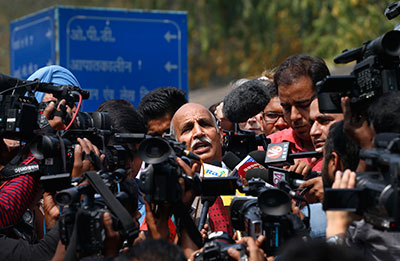In a welcome move, Indian media will finally be allowed to cover court proceedings in the rape case that shook India’s conscience. On Friday, the Delhi High Court lifted a gag order on media covering the ongoing trial of those accused of the gang rape and murder of a 23-year-old student in Delhi in December.
Prior to Friday’s court order, reporters have had to rely on limited details from lawyers involved in the case, which meant the information was not always reliable.
“The lifting of the gag should translate to more scrutiny of the investigation,” Geeta Seshu, consulting editor for The Hoot, a South Asian media watchdog, told CPJ.
Friday’s court order allows one journalist from each accredited media organization to attend the trial. Reporters are prohibited from publishing the name of the gang rape victim or witnesses, reports said.
In January, a lower court had invoked section 327 of India’s Code of Criminal Procedure, which forbids anyone unconnected to a case to be in the courtroom during trial and makes it “unlawful for any person to print or publish any matter in relation to any such proceedings, except with the previous permission of the court.” The statute rules out reporting even if the media receive information on what happens in the courtroom from someone who was present, according to The New York Times.
The magistrate in the lower court said the presence of the media and lawyers unconnected to the case was a distraction. “The courtroom is jam-packed with a lot of disturbance from different nooks and corners,” said the judge, Metropolitan Magistrate Namrita Aggarwal, in New Delhi’s Saket district. “It has become completely impossible to carry out proceedings in this manner.”
That decision was challenged by lawyer Meenakshi Lekhi, who said the hearings should be transparent. Critics like Lekhi argued that the press had the right to report on a matter of public interest and the people had a right to information on an issue that has gained worldwide attention.
In December, news of the gang rape sparked widespread protests across India. Thousands demonstrated on the streets of Delhi demanding the death penalty for the rapists. The outcry led to a new rape law.
Lifting the gag order could uncover critical details in a case that has already seen several twists and turns, including the death of one of the accused, Ram Singh, who was found hanged in prison earlier this month.
